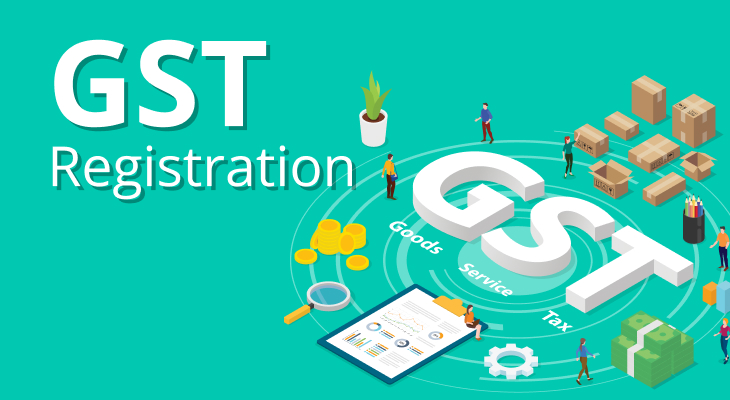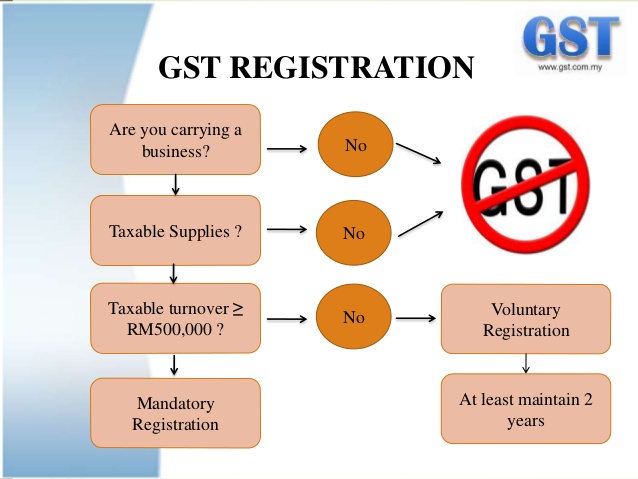The Ultimate Overview to Streamlining the GST Enrollment Process and Requirements for Small Company Owners

Recognizing GST Essentials
To grasp the basics of the Product and Solutions Tax Obligation (GST) system, tiny service proprietors must first comprehend its underlying effects and concepts. Under the GST program, businesses are needed to collect and register tax obligation on behalf of the federal government, making sure openness and conformity.
One of the crucial concepts of GST is input tax obligation credit report, which enables services to claim credit rating for taxes paid on their acquisitions. This device stops the cascading effect of tax obligations and advertises efficiency in the tax obligation system. In addition, GST is a destination-based tax, implying that the tax obligation is imposed at the factor of usage rather than the factor of origin. This makes sure fair distribution of tax obligation profits among states based upon where the services or products are eaten. Understanding these standard principles is essential for tiny organization proprietors to navigate the complexities of the GST system and make certain compliance with the regulation.
Eligibility Requirements for Enrollment
Having actually established a fundamental understanding of GST concepts, small company proprietors should now meet specific qualification standards to wage the registration process. In India, entities took part in the supply of goods or services with a yearly accumulation turnover surpassing Rs. 40 lakhs (Rs. 10 lakhs for unique category states) are called for to sign up for GST. Additionally, specific businesses such as those associated with inter-state supply of items, laid-back taxable individuals, and those needed to pay tax under the reverse fee mechanism should register for GST regardless of their turn over. In addition, businesses that were registered under the previous tax obligation program (BARREL, solution tax obligation, and so on) are also mandated to register under GST. Nonetheless, agricultural organizations that only provide produce out of primary manufacturing are exempt from GST enrollment. It is critical for company owner to carefully evaluate their eligibility based on these requirements to make sure conformity with the law and stay clear of any kind of penalties for non-compliance.
Files Required for GST Registration

Simplified Registration Refine Actions
Complying with the collection and verification of the requisite records, the enrollment procedure for GST can be browsed through a series of streamlined steps developed to help with efficient conformity for small business owners. The initial step entails checking out the GST portal and picking the 'New Enrollment' choice. Consequently, the applicant needs to fill out Part A of the GST REG-01 kind with details such as PAN, mobile number, and e-mail address to obtain an OTP for verification. When the OTP is obtained and gotten in, a Short-term Referral Number (TRN) is created for more process. The next step needs filling in Component B of the kind with required organization details, posting supporting papers, and completing the verification procedure using DSC or EVC. Finally, upon successful confirmation, an Application Reference Number (ARN) is issued, showing the conclusion of the GST enrollment procedure. By complying with these simplified steps, tiny business owners can successfully register for GST and make certain conformity with tax regulations.
Tips for Ensuring Conformity
To keep governing adherence and functional honesty, attentive oversight and aggressive measures are pivotal in making sure compliance with GST needs for small company owners. Small company proprietors have to remain updated with GST laws, filing due dates, and any type of modifications in tax obligation prices to prevent charges and preserve a good standing with tax authorities. One Check This Out necessary pointer for conformity is to keep thorough and exact records of all transactions, consisting of costs, receipts, and invoices connected to GST. Regularly fixing up financial documents with GST returns can help in determining and fixing any disparities without delay. In addition, performing periodic inner audits or looking for specialist help can guarantee that the organization is following all GST guidelines properly. It is additionally crucial for little organization owners to spend in GST-compliant accounting software application that can enhance the tax declaring process and lessen errors. Finally, participating in GST recognition workshops or training programs can boost understanding and compliance with GST guidelines, inevitably profiting business in the future.
Verdict
In verdict, local business proprietors should understand the fundamentals of GST, fulfill the eligibility requirements, gather required papers, and comply with the streamlined enrollment procedure actions to ensure compliance. By simplifying the GST enrollment procedure and needs, small company proprietors can avoid fines additional resources and run their businesses smoothly within the lawful structure - Singapore GST Registration. It is crucial for small company proprietors to remain educated and certified with GST regulations to maintain an effective company operation
Tiny company owners seeking GST registration need to ensure they collect and submit the essential papers to complete the enrollment process efficiently. The papers needed for GST registration generally include proof of company registration or unification, PAN (Irreversible Account Number) card of the company entity, address and identification proof of the promoters/partners/directors, photographs, address evidence of the place of business, bank account declarations or terminated cheques, and consent types. Attending GST awareness workshops or training programs can enhance understanding and conformity with GST guidelines, ultimately profiting the service in the lengthy run.
By streamlining the GST registration procedure and demands, tiny business owners can stay clear of penalties and operate their businesses smoothly within the legal structure. It is important for little service proprietors to remain informed and certified with GST regulations to maintain an effective organization procedure.